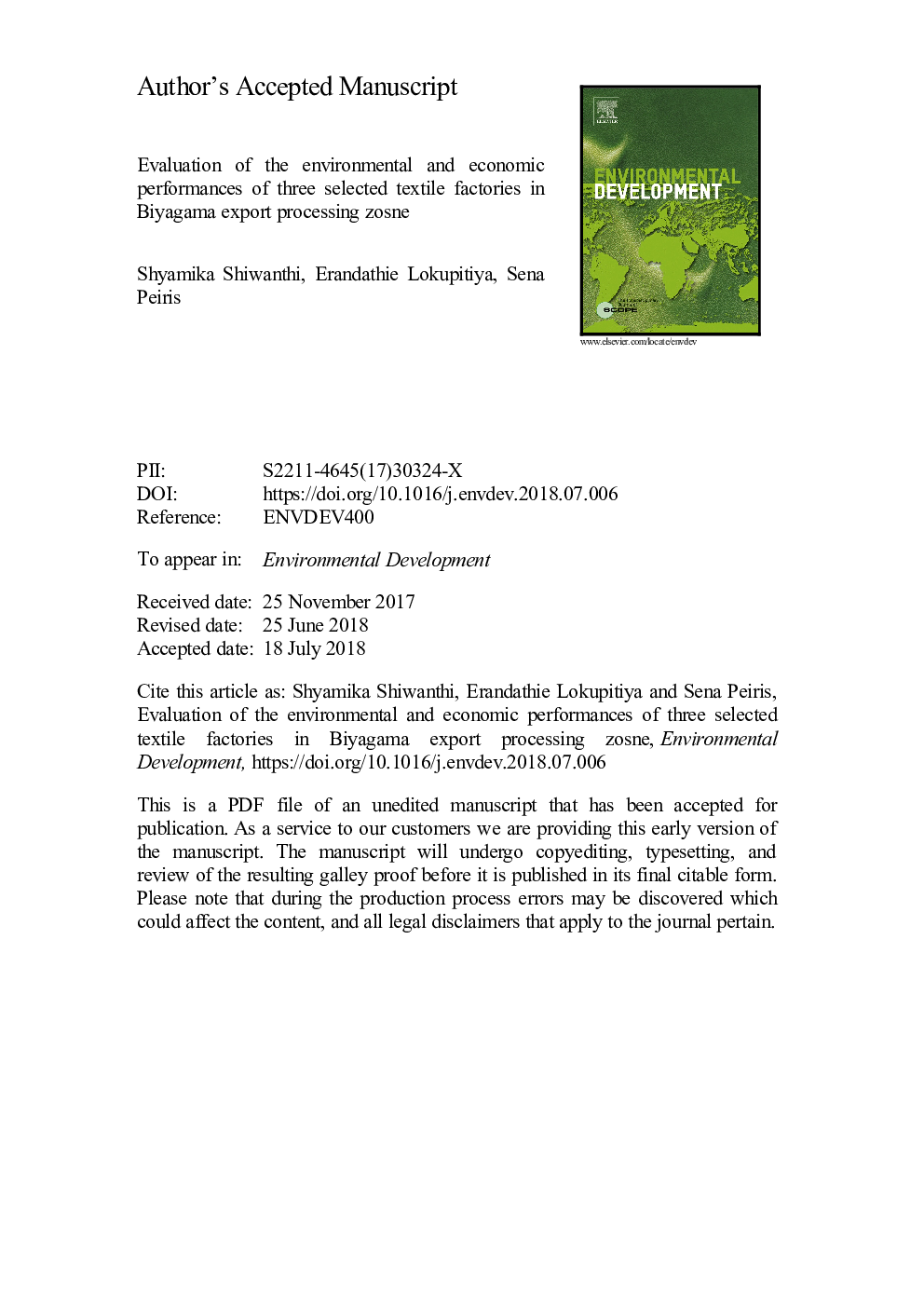| Article ID | Journal | Published Year | Pages | File Type |
|---|---|---|---|---|
| 10223372 | Environmental Development | 2018 | 37 Pages |
Abstract
The textile industry plays a critical role in the Sri Lankan economy. It is also a major consumer of energy and water and it is the fifth largest contributor to CO2 emissions in the world. With the increasing popularity of the concept of sustainability and the effect of the external and internal drivers, the textile industry of Sri Lanka has adopted more environmentally friendly production processes and uses sustainability as a marketing tool. This study was undertaken to evaluate the environmental and economic performances of three selected textile processing factories in the Biyagama Export Processing Zone, Sri Lanka. Eco-efficiency analyses were performed for each factory using the formula suggested by the World Business Council for Sustainable Development (WBCSD). Total production for the factories for five- year period (2011-2015) was considered as an indicator of product value. Indicators of environmental influence were selected by considering inputs (energy, material and water) and outputs (wastewater and greenhouse gas emission) associated with the production process. Sustainability measures undertaken by the factories within the study period were evaluated using the eco-efficiency change over time. The sustainability measures taken by each factory had a positive impact on their eco-efficiency. A correlation analysis considering eco-efficiency of different environmental factors and the revenue of the factories was performed. The study revealed that eco-efficiency influenced the production cost. The study also revealed a positive significant correlation between eco-efficiency and the factory level revenue.
Related Topics
Life Sciences
Environmental Science
Ecology
Authors
Shyamika Shiwanthi, Erandathie Lokupitiya, Sena Peiris,
